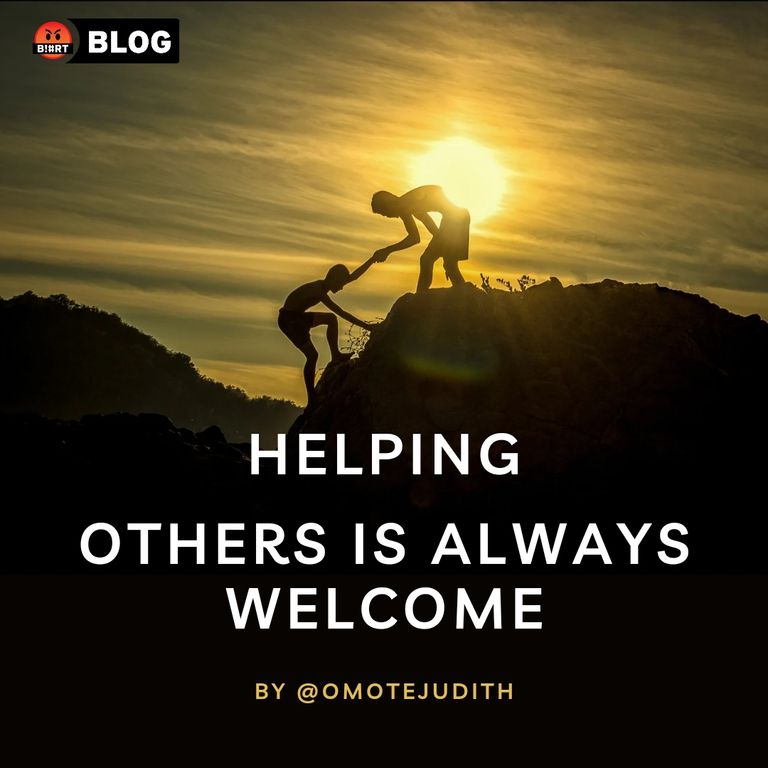
When faced with difficulties, who or what do you rely on for support? While I do seek help from others, my ultimate source of refuge in times of trouble is God.
Travel has a unique way of exposing us to situations where we must reach out to strangers for assistance. In these moments, our sense of self-reliance dissolves, and we become acutely aware of our vulnerability to the unknown. By opening ourselves up to authentic need, we offer others the chance to gain our trust and build meaningful connections. It's through the simple act of humbly asking for help that we tap into the most basic and universal expression of humanity across cultures.
Self-reliance is often praised in our culture as desirable, while being perpetually reliant on others can come with a sense of shame.
Being left alone without anyone requesting your assistance can lead to a feeling of isolation and dehumanization. Asking for aid in a society that values self-sufficiency can be seen as a valuable act of generosity. The modern world has become preoccupied with measuring the costs and benefits of every action we take, but requesting help allows for the opportunity to experience unconditional giving, which defies the logic of economic rationality on a deep, spiritual level. This exchange creates a sense of mutual indebtedness that is not based on the expectation of repayment.
In a relationship, both individuals take turns being both the giver and receiver, ultimately leading to increased humanity and gratitude within each person.
The Gospels hold multiple versions of the stories of Jesus feeding large groups of people. However, it is crucial not to lose sight of the intended message by getting caught up in debates regarding their factual precision. Focusing on whether or not Jesus could realistically feed thousands with only a handful of fish and loaves does not do justice to the significance of these narratives.
Are these narratives truly focused on factual events? That notion seems unlikely. Hyper-focusing on precise accuracy undermines the profound teachings embedded within the tales themselves. Fables of the mythological variety aren't concerned with accuracy, rather with disclosing transcendent truths that resonate universally.

The word trust is intriguing. Who or what do we place our trust in and what does it truly signify? To me, trust stems from our emotions rather than logic. In essence, it's a matter of having faith. "James Fowler once stated that faith is essentially rooted in our trust, going on to highlight that the term credo which typically translates to I believe actually means I trust."
He differentiates between belief being a matter of the mind and faith and trust belonging to the heart. He explains that trust is characterized by passion, a wholehearted approach to life, and a sense of awe and humility. It is an active state of being that informs one's every action and breath. Similar to hope, trust is a product of the heart - something that we bring forth from within ourselves.
We earn the confidence of others by investing our complete trust in them.
Courageously trusting develops trust over time, akin to how faith grows. This growth occurs through experimenting and allowing oneself to reach out - it's similar to how love and hope flourish. Trust springs forth from placing trust in others, however it does require true bravery. Naturally, wholeheartedly living necessitates possessing courage.
Trusting others does not hinge on achieving the desired outcome. Rather, it depends on how we respond and conduct ourselves in any circumstance. True trust goes beyond mere wishful thinking but instead, entails the belief that things will ultimately turn out for the best.
To have trust is not merely a self-centered concept. It means depending on sources other than ourselves; it means developing faith in life as a whole. Trust involves receiving support from others when necessary and offering it in return. It involves expanding our perspectives beyond our individual selves and being receptive to others and the larger force that unites all living beings.
In other words, it entails releasing control and entrusting oneself to a higher power.
Do you have faith in anyone or anything? When faced with difficult situations, who or what do you rely on for support? Trustworthy yourself? These are intriguing thoughts to contemplate.

Cuando se enfrenta a dificultades, ¿en quién o en qué confía para obtener apoyo? Si bien busco la ayuda de los demás, mi principal fuente de refugio en tiempos de problemas es Dios.
Viajar tiene una forma única de exponernos a situaciones en las que debemos pedir ayuda a extraños. En estos momentos, nuestro sentido de autosuficiencia se disuelve y nos volvemos muy conscientes de nuestra vulnerabilidad a lo desconocido. Al abrirnos a la necesidad auténtica, ofrecemos a otros la oportunidad de ganar nuestra confianza y construir conexiones significativas. Es a través del simple acto de humildemente pedir ayuda que aprovechamos la expresión más básica y universal de la humanidad a través de las culturas.
La autosuficiencia a menudo se elogia en nuestra cultura como deseable, mientras que depender perpetuamente de los demás puede generar una sensación de vergüenza.
Quedarse solo sin que nadie solicite su ayuda puede generar una sensación de aislamiento y deshumanización. Pedir ayuda en una sociedad que valora la autosuficiencia puede verse como un valioso acto de generosidad. El mundo moderno se ha preocupado por medir los costos y beneficios de cada acción que tomamos, pero solicitar ayuda brinda la oportunidad de experimentar la entrega incondicional, lo que desafía la lógica de la racionalidad económica en un nivel espiritual profundo. Este intercambio crea una sensación de endeudamiento mutuo que no se basa en la expectativa de reembolso.
En una relación, ambos individuos se turnan para dar y recibir, lo que en última instancia conduce a una mayor humanidad y gratitud dentro de cada persona.
Los Evangelios contienen múltiples versiones de las historias de Jesús alimentando a grandes grupos de personas. Sin embargo, es crucial no perder de vista el mensaje deseado al quedar atrapado en debates sobre su precisión fáctica. Centrarse en si Jesús podría o no alimentar de manera realista a miles con solo un puñado de pescado y pan no hace justicia al significado de estas narraciones.
¿Están estas narrativas verdaderamente enfocadas en hechos fácticos? Esa noción parece poco probable. El hiperenfoque en la precisión precisa socava las profundas enseñanzas incrustadas en los propios cuentos. Las fábulas de la variedad mitológica no se preocupan por la precisión, sino por revelar verdades trascendentes que resuenan universalmente.

La palabra confianza es intrigante. ¿En quién o en qué depositamos nuestra confianza y qué significa realmente? Para mí, la confianza surge de nuestras emociones más que de la lógica. En esencia, es una cuestión de tener fe. "James Fowler dijo una vez que la fe se basa esencialmente en nuestra confianza, y luego destacó que el término credo, que generalmente se traduce como creo, en realidad significa confío".
Él diferencia entre la creencia siendo un asunto de la mente y la fe y la confianza pertenecientes al corazón. Él explica que la confianza se caracteriza por la pasión, un enfoque incondicional de la vida y un sentido de asombro y humildad. Es un estado activo del ser que informa cada acción y respiración de uno. Al igual que la esperanza, la confianza es un producto del corazón, algo que sacamos de nuestro interior.
Nos ganamos la confianza de los demás invirtiendo toda nuestra confianza en ellos.
Confiar valientemente desarrolla confianza con el tiempo, similar a cómo crece la fe. Este crecimiento se produce a través de la experimentación y el permitirse extender la mano; es similar a cómo florecen el amor y la esperanza. La confianza surge de confiar en los demás, sin embargo, requiere verdadera valentía. Naturalmente, vivir de todo corazón requiere poseer coraje.
Confiar en los demás no depende de lograr el resultado deseado. Más bien, depende de cómo respondamos y nos comportemos en cualquier circunstancia. La verdadera confianza va más allá de las meras ilusiones, sino que implica la creencia de que, en última instancia, las cosas saldrán bien.
Tener confianza no es simplemente un concepto egocéntrico. Significa depender de fuentes distintas a nosotros mismos; significa desarrollar la fe en la vida como un todo. La confianza implica recibir apoyo de los demás cuando sea necesario y ofrecerlo a cambio. Implica expandir nuestras perspectivas más allá de nosotros mismos y ser receptivos a los demás y a la fuerza mayor que une a todos los seres vivos.
En otras palabras, implica liberarse del control y confiarse a un poder superior.
¿Tienes fe en alguien o en algo? Cuando se enfrenta a situaciones difíciles, ¿en quién o en qué confía para obtener apoyo? ¿Fiable usted mismo? Estos son pensamientos intrigantes para contemplar.
Nice one, the caption really got my attention, helping is always good despite some people abuse it sometimes
Thanks 🙏